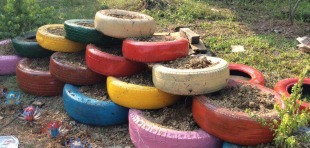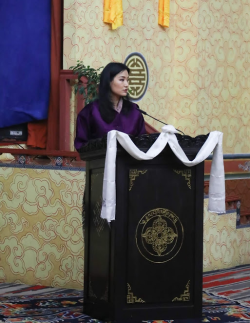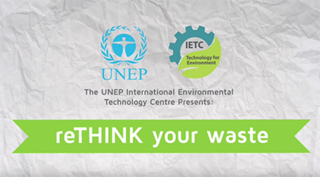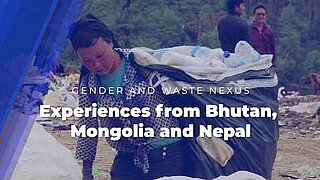Beating plastic pollution in Bhutan

Districts and cities in Bhutan enter a competition on the best approaches for waste reduction and recycling.
Coinciding with this year’s World Environment Day, the Waste Management Division of Bhutan’s National Environment Commission Secretariat (NECS) carried out an education and outreach programme in four major cities and all 20 of the country’s districts on the theme ‘Beat Plastic Pollution’. The three winning initiatives, put forward by Tsirang District, Samtse District and Thimphu City, were selected because of the innovative ideas they offered for beating plastic pollution. These initiatives were presented during Bhutan’s District Environment Officers conference in July and were awarded by Her Majesty the Queen of Bhutan.
 Waste has become a global concern and Bhutan is no exception. Consumption patterns have resulted in an increase in the amount of waste generated. Inadequate waste disposal is increasing the risks to the health of ecosystems and people and, at the same time, is generating considerable greenhouse gas emissions (GHGs). The project Strengthening the Capacity in Bhutan, Mongolia and Nepal to Reduce GHGs and Short-lived Climate Pollutants (SLCPS) from the Waste Sector Based on Circular Economy Concept tackles this problem by aiming to reduce emissions generated in the waste sector.
Waste has become a global concern and Bhutan is no exception. Consumption patterns have resulted in an increase in the amount of waste generated. Inadequate waste disposal is increasing the risks to the health of ecosystems and people and, at the same time, is generating considerable greenhouse gas emissions (GHGs). The project Strengthening the Capacity in Bhutan, Mongolia and Nepal to Reduce GHGs and Short-lived Climate Pollutants (SLCPS) from the Waste Sector Based on Circular Economy Concept tackles this problem by aiming to reduce emissions generated in the waste sector.
While Bhutan still has unused potential when it comes to mitigating GHG emissions from waste treatment, the project is also supporting its partners’ actions to reduce waste in the first place and to promote recycling. The NECS education and outreach programme held a series of competitions with different cities and districts to encourage waste management initiatives for environmental protection and to develop waste management initiatives relevant to the Beat Plastic Pollution theme. The programme encouraged local actors to showcase educational and innovative ideas that could be replicated in other districts.
The award-winning initiatives included activities to launch ‘Local Shops’ dedicated to converting waste plastic materials into commercially viable products, set up plastic recycling projects, repurpose plastic barrels for the beautification of cities, introduce organic composting at household level, provide school children with environmental education and convert mini-landfill sites into micro gardens. The districts will continue implementing the different innovations and good practices these generate will be replicated in other areas.
The criteria used to select the best initiatives were based on the relevance of the theme addressed, the quantity of waste generated, the educational and innovative qualities of the ideas presented, and the partnership approach employed for reducing or reusing plastics. Some of the activities carried out as part of the outreach programme were mass cleaning campaigns, banner design competitions, tree planting, the observation of Bhutan Pedestrian Day and the sharing of lessons on effective waste sorting and management. Many community volunteers and schools also exhibited various plastic products. Focusing on the three R’s – reduce, reuse and recycle – they demonstrated that plastics need not end up as waste, but can instead be repurposed to create different products, an activity that could also generate income for schools and local communities.
The project Strengthening the Capacity in Bhutan, Mongolia and Nepal to Reduce GHGs and SLCPS from the Waste Sector Based on Circular Economy Concept is being implemented in Bhutan by the United Nations Environment Programme, (UN Environment) together with its partners the Bhutan National Environment Commission and the World Wildlife Fund (WWF). It is funded by the International Climate Initiative (IKI) of the German Environment Ministry (BMU).
Gallery of the best ideas and activities to Beat Plastic Pollution:
The link has been copied to the clipboard
Contact
IKI Office
Zukunft – Umwelt – Gesellschaft (ZUG) gGmbH
Stresemannstraße 69-71
10963 Berlin





![[Translate to English:] Cover: Ulaanbaatar Household waste composition study report](/legacy/_processed_/7/d/csm_200220_Ulaanbaatar_household_waste_6912160c99.jpg)